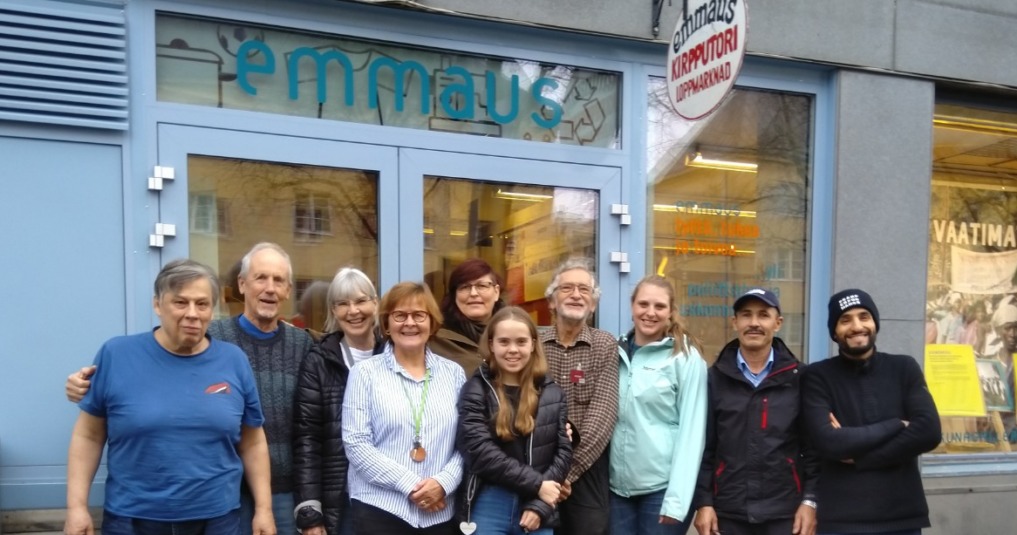Emmaus in Finland
A discussion with Anu Lähde, national delegate for Finland on the board of Emmaus Europe.
Can you tell us about how Emmaus began in Finland?
Starting in 1959, a small group of Finns began supporting the work of Swedish organisation, Swallows, in India and Peru. In 1964, Birgit and Rurik Rancken set up Swallows in Ekenäs in south west Finland. They selected and prepared volunteers for the work in India and Peru, and organised discussions and provided information about the third world.
Gérard Protain, a French priest committed to his work with the Emmaus rag-pickers in Lima, was ex-pelled from Peru in 1962 as the authorities judged his work and views subversive. He went back to Finland and helped set up the Emmaus Helsinki community in 1966, with Marita Uunila and the Friends of Emmaus. Students and adults worked together to help people living on the streets, organise collection work and manage the second-hand shops.
What activities are led by Emmaus in Finland?
The first Emmaus group in Finland, Swallows, is one of the oldest Finnish development cooperation organisations. Swallows of Finland focus on long-term partnership with Nepalese, Indian and Peruvian NGOs, as the first Swallows Emmaus groups from Sweden. The other Emmaus groups manage second hand shops.
Finnish groups emphasise solidarity and development cooperation support as well as offering supported employment schemes or rehabilitation schemes for vulnerable groups (for example, disabled, unemployed or migrants). Finnish groups no longer have communities with companions. There is always lots of work to be done with the collection, sorting and selling of donated goods in the second hand shops. Most of the income allows to support the international solidarity, notably in the Baltic countries.
Both Emmaus Åland and Helsinki have initiated labour pools which strive to offer more employment opportunities to vulnerable and marginalised groups. The labour pools focus on employing migrant women and men at risk of poverty and exclusion. These people mostly originate from Southeast Europe and represent various cultures and languages. Through the labour pool they do official work such as cleaning, gardening and repair. They also receive basic training and help in all kinds of issues (such as on employment or legal matters). The Emmaus Åland labour pool has been able to offer employment both for shorter or longer assignments, impacting around 50 people.
How have things been going since the health crisis and how did you adapt to the situation?
The coronavirus pandemic has caused challenges for our second hand shop activities due to shops being closed last spring for several months and there have been less customers and volunteers. The situation is still foreseen to continue and thus the amount of income destined to the solidarity support is this year smaller than usual (for the second year in a row). Emmaus Helsinki has been able to give sometimes 40 % of its annual income to solidarity support but this year the total could be only 25 %.
However, even when times are difficult, all the groups are committed to continue the solidarity work as much as possible. The crisis has made us reflect on our values and prioritise our activities. We have needed to think about our financial situation more carefully and adjust our activies i.e. Emmaus Åland’s restaurant ceased its operations permanently. Nevertheless, we have generally managed to cope quite well in the crisis.

© Emmaus Helsinki



